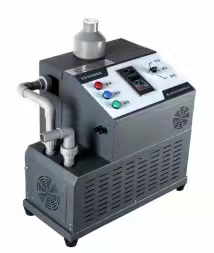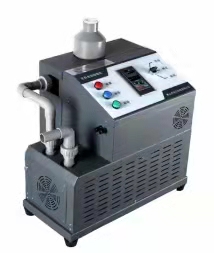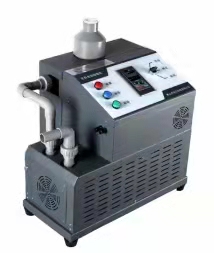The suction unit is known as a dental suction machine, is designed to provide the suction required during dental surgery. The suction unit could draw an amount of air and saliva into them over a short time. During the treatment process, it could keep the patients’ teeth and mouth dry. The dental suction machine also can be used for infection prevention. In order to aerosolize saliva particles, some countries also require the clinic should use a dental suction unit in any treatment involving fast-moving dental tools. Therefore, pneumatic suction in dental chairs is necessary for some countries.
The suction unit has a simple working principle but benefits dental surgery a lot. Its primary function is to remove excess saliva, water, blood, and debris from the patient's mouth during various dental procedures. Moreover, it plays an important role during the dental surgery process. Here are the main benefits of using dental suction machine :
Dental procedures often involve the use of water and other liquids to rinse and cool the treatment area. The suction machine helps remove excess saliva and fluids generated during these procedures, ensuring clear visibility and a dry operating field for the dentist.
Dental work can produce debris such as tooth fragments, restorative materials, and small particles. The suction machine efficiently eliminates this debris from the patient's mouth, preventing it from being ingested or causing discomfort.
Many dental procedures generate aerosols, which can contain bacteria and other contaminants. The suction machine aids in capturing and removing these aerosols, helping to maintain a clean and hygienic environment within the dental operatory.
Suction reduces the need for patients to continuously spit or swallow during dental procedures, making the experience more comfortable for them. It also minimizes the risk of gag reflex activation.
By keeping the treatment area dry and free of fluids, the dental suction system ensures that the dentist has a clear and unobstructed view of the patient's oral cavity. This is essential for precise diagnosis and treatment.
Properly maintained dental suction systems contribute to infection control in the dental office by capturing and containing potentially infectious materials, reducing the risk of cross-contamination.




